
Adjuvant sacituzumab govitecan demonstrated a complete response, but its future in bladder cancer is uncertain after a recent protocol amendment.

Your AI-Trained Oncology Knowledge Connection!


Adjuvant sacituzumab govitecan demonstrated a complete response, but its future in bladder cancer is uncertain after a recent protocol amendment.
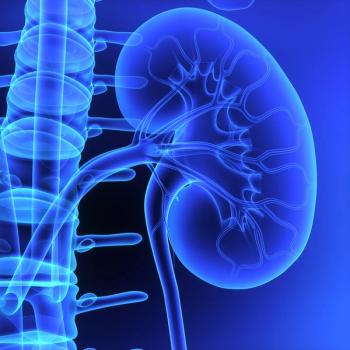
Treatment with DFF332 appears to be safe and tolerable across all dose levels, according to Sumanta Kumar Pal, MD.

Neoadjuvant avelumab plus cisplatin yielded high event-free survival in muscle-invasive urothelial carcinoma.
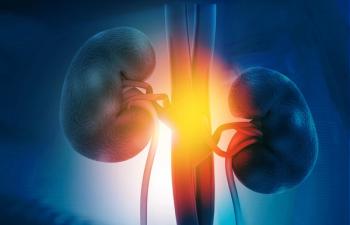
Adjuvant pembrolizumab resulted in a reduction in the risk of death in patients with ccRCC.

Common adverse effects following treatment with lenvatinib plus pembrolizumab in the phase 3 CLEAR study include diarrhea, hypertension, and fatigue, according to Thomas E. Hutson, DO, PharmD, FACP.

Lenvatinib in combination with pembrolizumab appears to raise no new safety signals in patients with advanced clear cell renal cell carcinoma after 4 years of follow-up in the phase 3 CLEAR study.

According to Thomas E. Hutson, DO, PharmD, FACP, 4-year follow-up data from the phase 3 CLEAR study confirm the maintained benefits of lenvatinib plus pembrolizumab in patients with advanced renal cell carcinoma.

Alicia K. Morgans, MD, MPH, from Dana-Farber Cancer Institute indicates that patients with non-metastatic castration-resistant prostate cancer are able to stay on treatment for long periods of time with darolutamide vs enzalutamide and apalutamide.
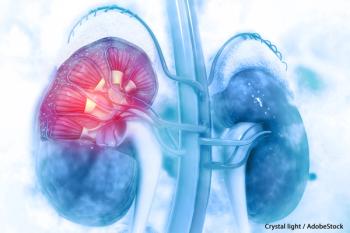
Data from the phase 2 KEYNOTE-B61 trial indicate that pembrolizumab plus lenvatinib’s safety profile in the first-line treatment of patients with non-clear cell renal cell carcinoma is safe and manageable.
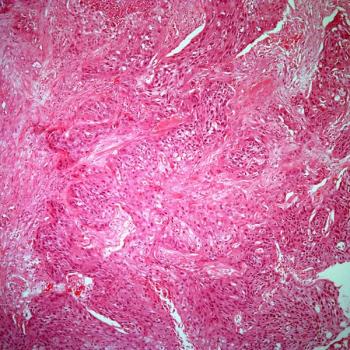
Findings from the phase 3 SWOG S1011 trial highlight no significant differences between extended lymphadenectomy vs standard lymphadenectomy in terms of disease-free survival in patients with muscle-invasive breast cancer.

Pembrolizumab plus axitinib also improves the overall response rate vs sunitinib alone among patients with clear cell renal cell carcinoma in the phase 3 KEYNOTE-426 trial.

Data from the phase 3 CONTACT-03 trial highlight the necessity of randomized, prospective assessment of re-challenge with checkpoint inhibitors in renal cell carcinoma, according to an expert from Dana-Farber Cancer Institute.
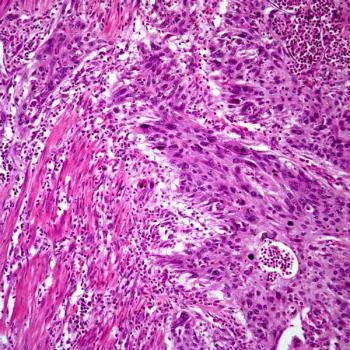
Pembrolizumab in combination with enfortumab vedotin-ejfv demonstrates a manageable safety profile in the treatment of metastatic urothelial carcinoma in the EV-103 trial.

Lenvatinib plus pembrolizumab generates no new safety signals among patients with advanced renal cell carcinoma in the phase 3 CLEAR study.

The overall survival benefit of erdafitinib supports molecular testing of FGFR in all patients with metastatic urothelial carcinoma, according to an expert from University Paris-Saclay in France.

Talazoparib plus enzalutamide appears to improve the objective response rate vs enzalutamide plus placebo among patients with metastatic castration-resistant prostate cancer harboring homologous recombination repair mutations in the phase 3 TALAPRO-2 study.

Germline and somatic BRCA1/2 alterations correlate with worse survival in patients with metastatic castration-resistant prostate cancer in the CAPTURE trial.

Patients with renal cell carcinoma with variant histologies appear to benefit from treatment with a triplet regimen of cabozantinib, nivolumab, and ipilimumab.

According to an expert from Johns Hopkins Sidney Kimmel Comprehensive Cancer Center, radium-223 shows positive efficacy and safety findings for patients with metastatic castration-resistant prostate cancer.
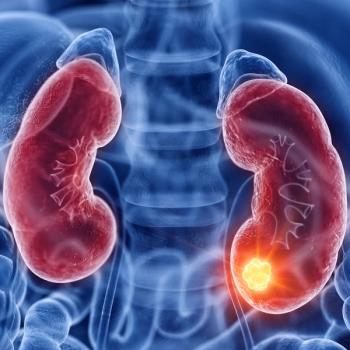
The combination is also associated with a manageable toxicity profile in the second and subsequent treatment lines for patients with advanced renal cell carcinoma.

A recent phase 3 trial of the combination included a total of 398 patients with metastatic castration-resistant prostate cancer, unselected for homologous recombination repair gene alterations, in the safety cohort.

The treatment discontinuation rate was 30.4% for darolutamide, 40.8% for enzalutamide, and 46.0% for apalutamide among patients with nonmetastatic prostate cancer, according to a recent analysis.

Tanya Dorff, MD, spoke about how CAR T-cell therapy could be a potential new addition to the prostate cancer treatment paradigm based on data from ongoing studies.

At 2022 ASCO, Tanya Dorff, MD, reviewed the use of CAR T cells in the treatment of prostate cancer.

Phillip H. Kuo, MD, PhD, spoke about incorporating prostate-specific membrane antigen–PET imaging into multidisciplinary care for patients with metastatic castration-resistant prostate cancer.

Phillip H. Kuo, MD, PhD, spoke about the future of theragnostic imaging in patients with metastatic castration-resistant prostate cancer.

Phillip H. Kuo, MD, PhD, spoke about how prostate-specific membrane antigen PET scan testing affected outcomes in patients with metastatic castration-resistant prostate cancer.
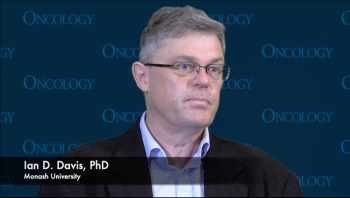
Ian D. Davis, MBBS, PhD, spoke about the TheraP study which evaluated 177Lu-PSMA-617 vs cabazitaxel in patients with metastatic castration-resistant prostate cancer.

Phillip H. Kuo, MD, PhD, spoke about the use of theragnostic treatment and imaging for patients with metastatic castration-resistant prostate cancer.

Ian D. Davis, MBBS, PhD, spoke about the subgroup analysis of the ENZAMET trial which analyzed enzalutamide in metastatic hormone-sensitive prostate cancer.